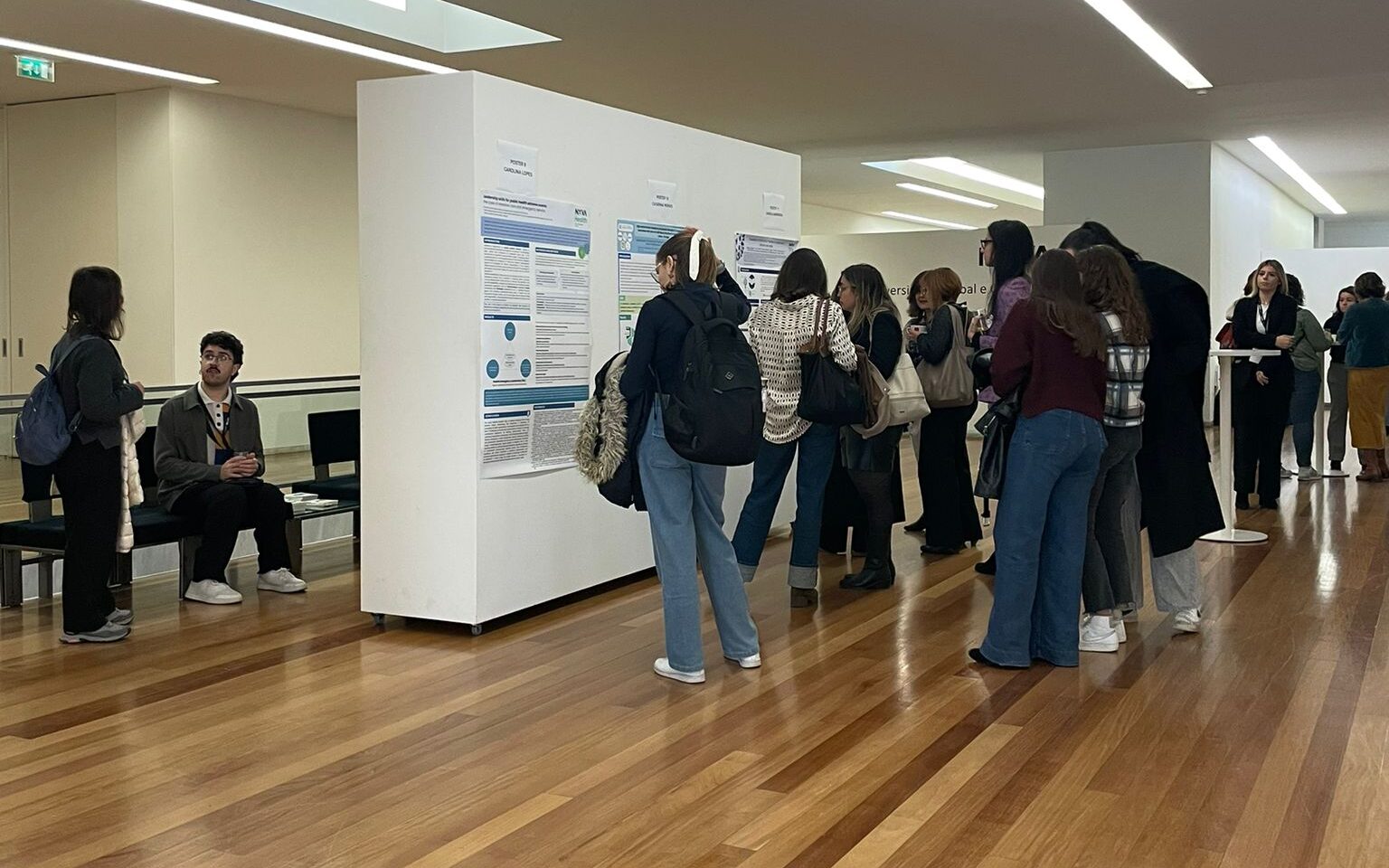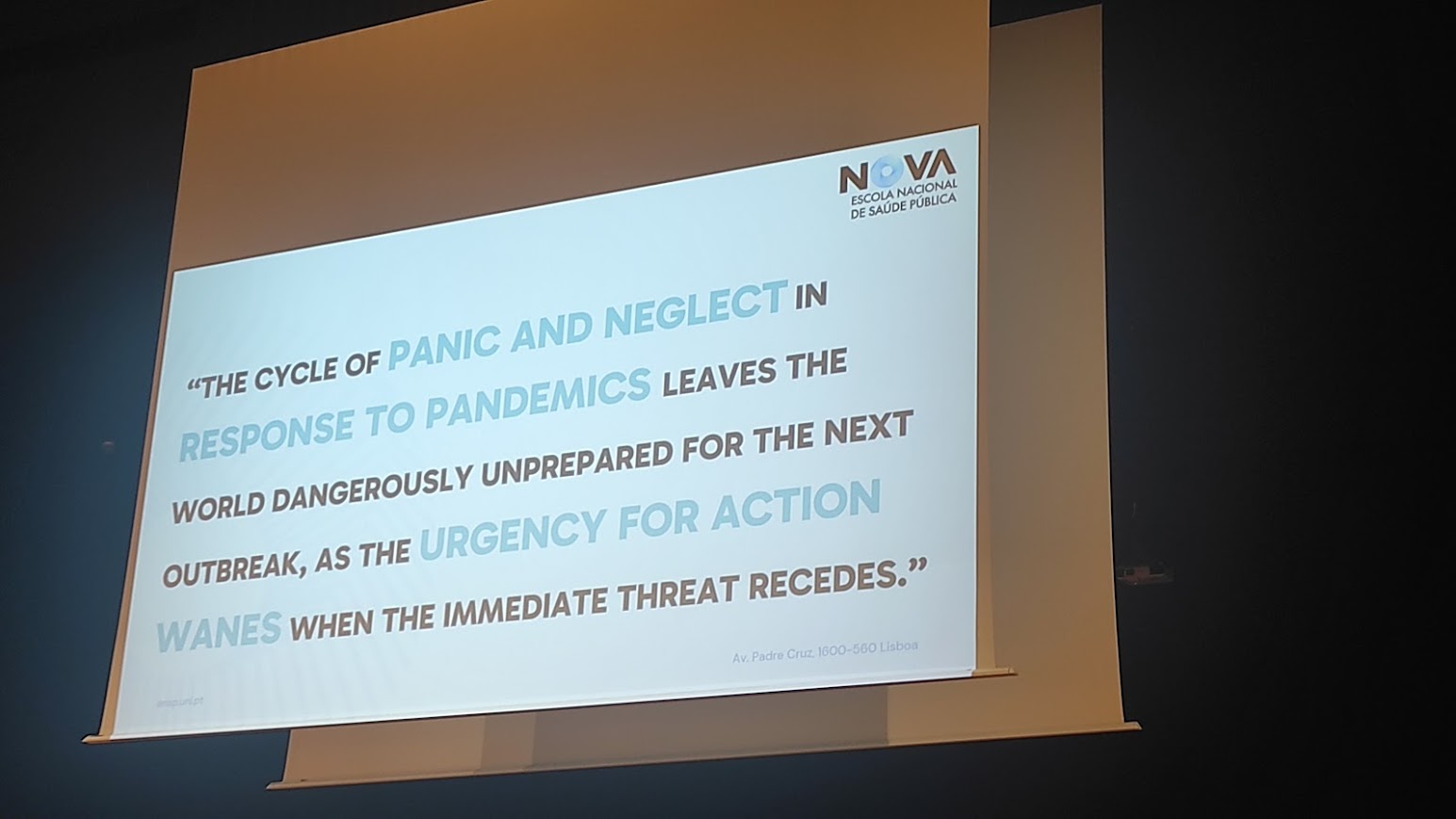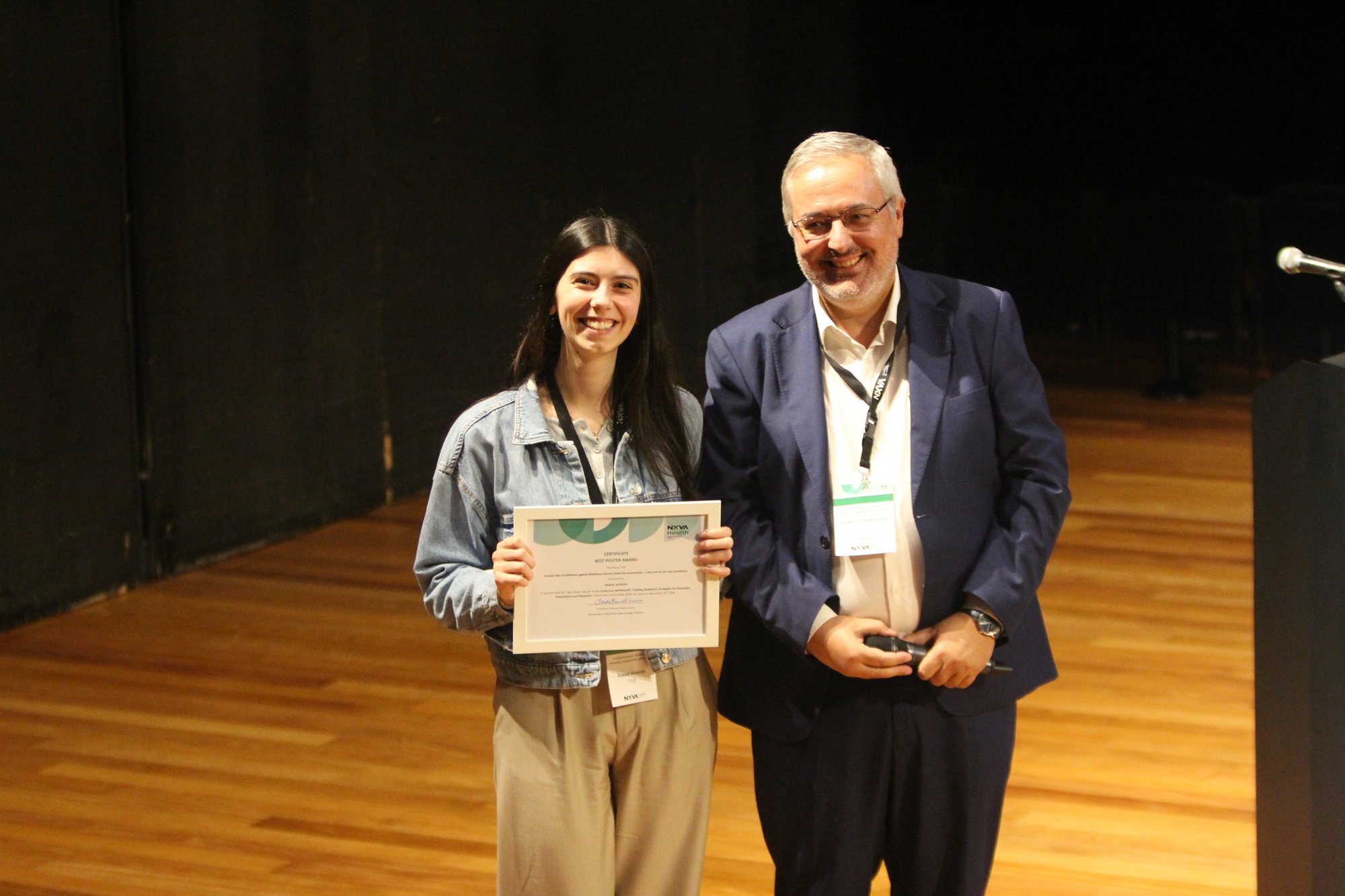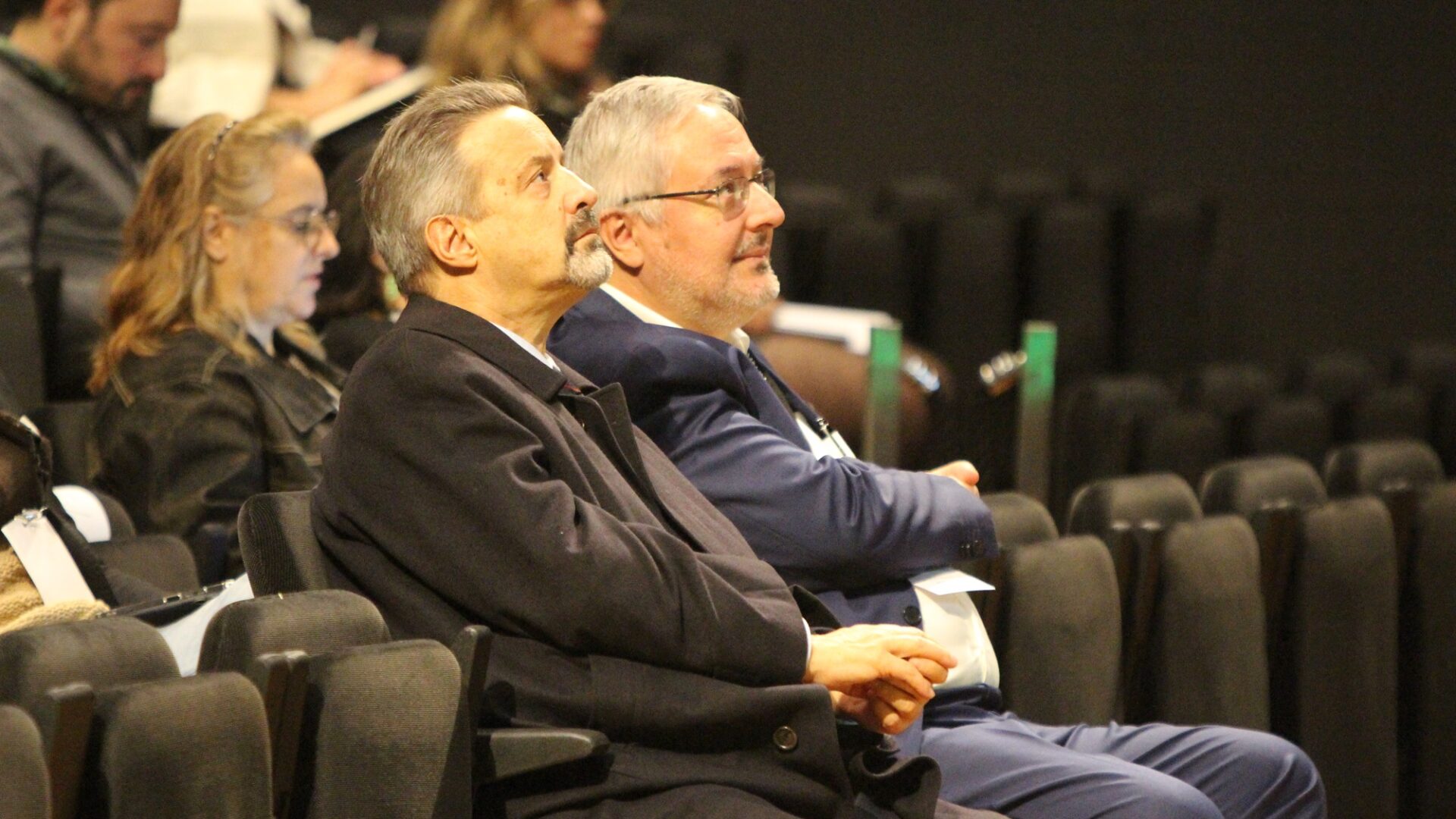The name says a lot about what took place this Monday, the 18th, at NOVA University Lisbon’s Rectory. The International Conference “Tackling Pandemics: Strategies for Prevention, Preparedness and Response” – or “Enfrentar as Pandemias: Estratégias de Prevenção, Preparação e Resposta” – brought together students and experts to assess what we’ve learned from the Covid-19 pandemic, five years after the first SARS-CoV-2 infection was identified in China, and to reflect on today’s threats.
“Covid-19 was neither the first nor the last pandemic humanity will face. Although it could not be prevented, it was science that saved us. So, can we better prepare for similar events in the future?”
This question, posed by Cláudio Soares, NOVA’s Vice-Rector for Health, set the tone for the event while also addressing the current context: “We also need to improve communication, as truth was one of the first casualties of the pandemic in 2020,” noted.

One Health – one shared health
“Infectious diseases are expected to have the greatest impact on health, on a climate change scenario,” said Aleksandra Kazmierczak, a climate change and human health expert at the European Environment Agency (EEA), highlighting climate change as one of the greatest threats to global health. “Over half of pathogenic diseases are likely to worsen with extreme weather events,” she pointed out, urging a holistic approach to health through the One Health concept, which integrates human, animal, and environmental health.
Ricardo Assunção, a researcher at the Egas Moniz Interdisciplinary Research Centre, addressed the risks and preparedness for infectious diseases in this context, reminding attendees that “adopting a sustainable diet is an accessible practice for everyone, beneficial for both people and the planet.”
Throughout the day, various presentations outlined possible scenarios. Inês Martins Alves, from the Institute of Hygiene and Tropical Medicine (IHMT NOVA), demonstrated how “epidemiological surveillance in schools is an effective way to detect virus variations.” Rebeca Pabst, also from IHMT NOVA, warned about the rise of vector-borne diseases (those transmitted by organisms between humans or from animals to humans). Meanwhile, André Peralta Santos, from the National School of Public Health (ENSP-NOVA), and Deputy Director-General for Health, emphasised that “speedy intervention is critical during a pandemic.”

Revising and updating risks for the 21st century
Paula Patrício, from NOVA FCT, illustrated how mathematical models can support decision-making during public health emergencies. Alda Correia, from NOVA FCSH, highlighted the importance of narrative medicine, stressing that doctors must act as interpreters of their patients’ experiences. Carolina Buga, from ITQB NOVA, underscored how coronaviruses have become one of the greatest risks in the 21st century, while Diogo Silva, also from ITQB NOVA, revealed how artificial intelligence is already helping scientists anticipate future pandemics.
João Paulo Gomes, from the National Institute of Health Dr Ricardo Jorge (INSA), discussed models used to identify outbreaks with pandemic potential, while Paulo Paixão, from NOVA Medical School, stressed the importance of monitoring respiratory viruses. Catarina Pimentel, from ITQB NOVA, warned that fungi could emerge as serious candidates for future pandemics: “With the decrease in human body temperature and the rise in the planet’s average temperature, conditions are being created that allow fungi to adapt and infect humans,” she explained.

Thinking outside the box? Yes, please!
While exploring potential pandemic agents, the event also addressed the “silent epidemic” in hospitals: growing antimicrobial resistance, a topic presented by Sofia Santos Costa from IHMT NOVA.
Isabel Carvalho Oliveira, from the Agency for Clinical Research and Biomedical Innovation, discussed European funding for health, confirming that it remains a priority for the EU. Susana Marques, from Pfizer, offered the pharmaceutical industry’s perspective, emphasising how the accelerated research and approval process for the first Covid-19 vaccine was critical.
After presentations from Inês Saraiva, from the Gulbenkian Institute of Science, who introduced “a novel broad-spectrum antiviral strategy against SARS-CoV-2,” and Juliana Gonçalves, from NOVA Medical School, who stressed the need to improve vaccine uptake among the elderly, the event concluded with the award for best poster, given to the Raquel Almeida, author of the project “A novel class of antibiotics against multidrug-resistant Klebsiella pneumoniae – a key tool for the next pandemic.”
In the final panel discussion, before reaffirming the scientific community’s commitment to global health, participants emphasised that the best way to act against future pandemics is to…“think outside the box.”
Read more here about the health sector in NOVA

